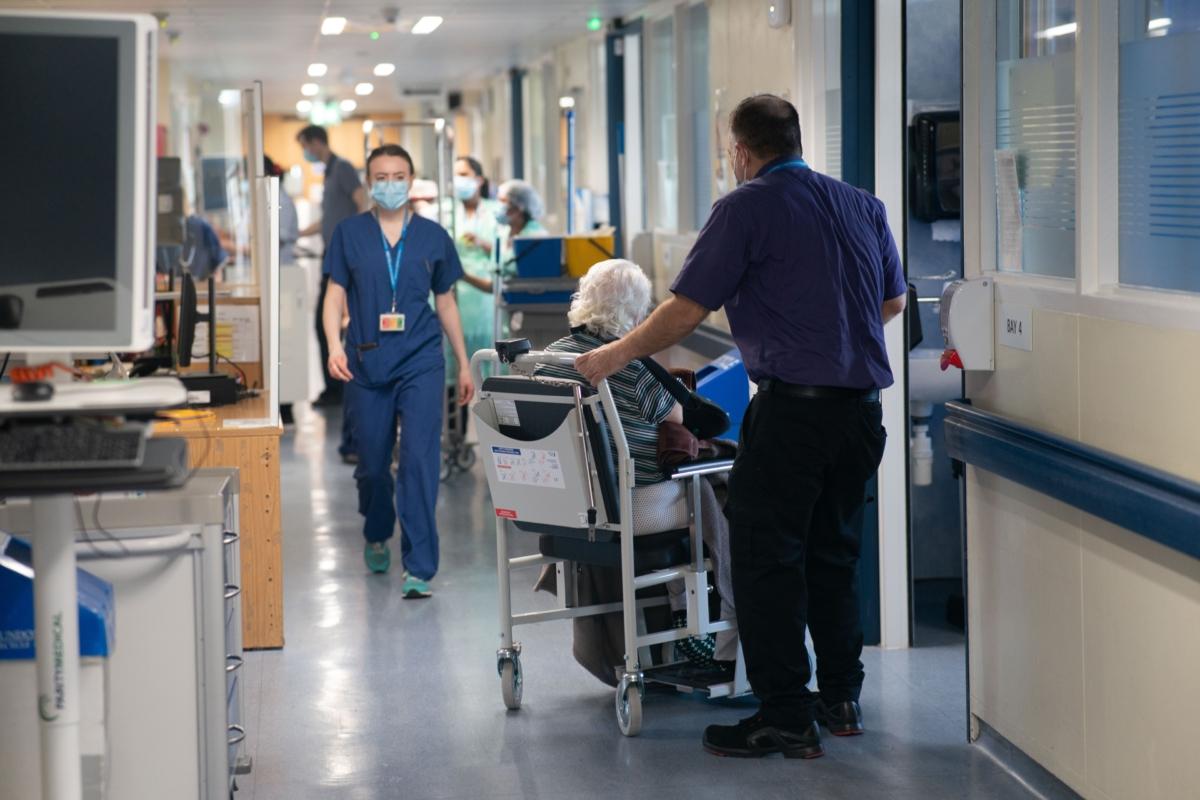Cancer death rates have fallen by more than a fifth in the last 50 years but cases are rising, according to a new analysis.
A report from Cancer Research UK found people are now more likely to get cancer than decades ago, but are less likely to die from the disease.
Figures show that the rate of people dying from cancer in the UK has fallen by around 22 percent since the early 1970s, but the rate of people being diagnosed with the disease has risen by almost half.
In 1973, some 328 per 100,000 people died from cancer, dropping to around 252 per 100,000 in 2023, driven by improvements in areas such as diagnosis and better treatment, as well as action to cut smoking.
The study said: “Survival for all cancers combined in England and Wales has doubled since the early 1970s, but progress has slowed over the last 10 years and remains lower than other comparable countries.
“Survival increased three to five times faster in previous decades, compared with the improvement since 2010.”
Cancer Research UK warned that, despite improvement in overall survival, many more people are being diagnosed with cancer compared with 50 years ago.
Incidence rates have risen sharply by almost half (47 percent) across Great Britain over this period, from around 413 cases per 100,000 people to around 607 cases per 100,000 people.
The report listed the preventable causes of cancer, saying smoking remains the biggest cause of cancer, while obesity is linked to 13 different types of the disease.
Other risks include not using sunscreen or failing to cover up in the sun, sunbeds, alcohol, lack of exercise, and diets high in processed meat.

The report pointed out that around half of all new cancer diagnoses are in people aged 70 and over, but incidence rates are currently rising fastest in younger people.
It said: “In the UK, cancer incidence rates have increased by 23% in people aged 20 to 49 since the early 1990s.
“However, population growth is concentrated in older age groups, so in terms of patient numbers, the biggest increase in cancer cases has been in older people.”
The study also found that, on average, just over half of cancers are diagnosed at an early stage in England (54 percent), and this proportion has not changed for almost a decade.
Michelle Mitchell, Cancer Research UK’s chief executive, said: “It’s fantastic to see that thanks to research, cancer death rates have drastically reduced over the last 50 years, and survival has doubled.
“However, there’s more that can be done. This report highlights that over 460 people die from cancer every single day in the UK, and too many cases are diagnosed at a late stage.
“If we want to change that, we need bold action from the UK government.
“The upcoming National Cancer Plan for England must improve cancer survival, and transform cancer services.
“If this plan is done right, it could save countless lives across England and ensure people affected by cancer live longer, better lives.”
Cancer Research UK is calling for commitments such as the national rollout of a targeted lung cancer screening programme, quicker access to diagnostic tests for all patients, better access to GPs for speedy diagnosis, and action to improve cancer waiting times.
Its new study is the first ever to include 50 years of cancer death and incidence data for the UK.
Elsewhere, MPs and members of the House of Lords have urged the government to prioritise faster diagnosis of less survivable cancers, which are those that develop in the brain, pancreas, liver, lung, oesophagus, and stomach.
A new report from the All-Party Parliamentary Group (APPG) on Less Survivable Cancers claims these cancers claim 67,000 lives a year, around 42 percent of cancer deaths.
Doubling diagnoses rates in these areas could save an additional 7,500 lives a year, it said.
Paulette Hamilton, chairwoman of the APPG on Less Survivable Cancers, said this is a “crucial moment for transforming patient outcomes and accelerating survival rates for the less survivable cancers.”
“We’re on the brink of research breakthroughs and in the midst of developing potentially game-changing government health reforms,” she added. “In this backdrop, achieving faster diagnosis for these devastating cancers is finally within reach.”
Professor Peter Johnson, NHS national clinical director for cancer, said: “The NHS is seeing and treating record numbers of people for cancer, with more people diagnosed at an earlier stage than ever before, and survival rates in England at an all-time high.
“We have developed world-leading programmes, including lung cancer screening in convenient locations such as car parks and using AI to spot skin cancer, making it easier than ever before to get checked.
“The latest data shows that more than three quarters of people received the all-clear or a definitive cancer diagnosis within four weeks of an NHS urgent cancer referral.”






